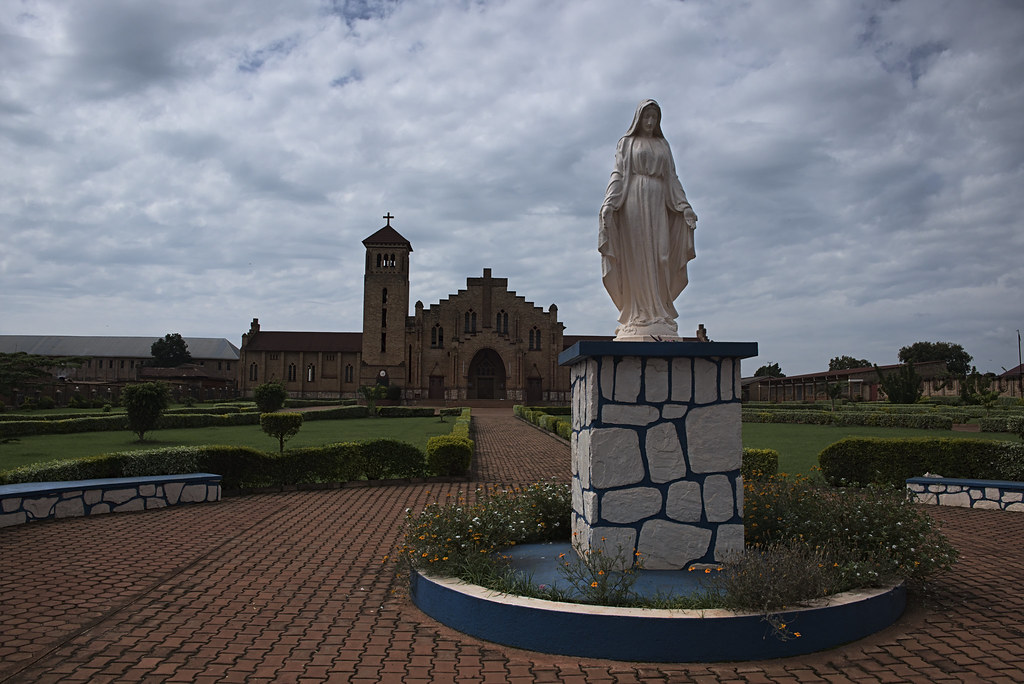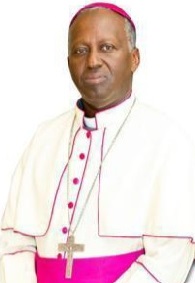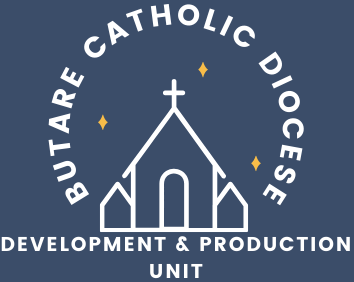
Strategic Plan for the Pastoral and Strategic Plan for the Pastoral and Socio-economic Development of the Diocese of Butare
Overview
This is a 3-year Strategic Plan for the Pastoral and Socio-economic development of the Diocese of Butare, located in the southern region of Rwanda. With Rwanda’s population steadily increasing to about 13.2 million people, food security remains a significant concern for many locals. The Butare Diocese includes people of concern, resettled citizens, and numerous institutions that often lack sufficient land to cultivate food for both consumption and commercial purposes. The available land, often situated in lowlands, is vulnerable to adverse climate change effects such as floods and prolonged droughts. Additionally, school feeding programs are inconsistent, with some primary schools unable to provide daily meals, highlighting the critical need for nutritious food to ensure quality health and life for every citizen.
Historical Context and Development Efforts
Since its creation, the Diocese of Butare has been a dominant force in development outside the government, implementing a variety of major projects that have significantly contributed to the well-being of the people. These efforts include highly acclaimed peace initiatives in a region that has periodically faced challenges in maintaining peace. Despite slow but steady growth, the provision of development goods has been highly appreciated and has influenced a shift towards the Catholic faith.
Previous strategies for delivering health and education to the poor have proven expensive for the Church. Unhelpful government policies have also raised questions about the most efficient means of meeting the aspirations of the people in the diocese. Much of the socio-economic progress has been achieved through external funding, which has nearly dried up, necessitating a new strategy for generating income to support the Church’s growth and charity objectives.
Objectives
The main objectives of the Strategic Plan are to:
- Realize greater evangelization results.
- Improve the infrastructure and impact of church institutions.
- Enhance the well-being of the people of the diocese.
- Make socio-economic initiatives more effective and sustainable.
Ultimately, the diocese aims to become self-reliant, fostering agricultural developments throughout the entire diocese.
The Process
The preparation of the Plan involved several key areas:
- Pastoral Construction
- Agriculture and Rural Development
- Integral farming systems are essential for sustainable agricultural practices, food security, and poverty reduction in the region.
- Financial Management
- Monitoring, controlling, protecting, and reporting on diocesan financial resources.
- The diocesan finance team manages finances, including all bank transactions, loans, debts, investments, and other funding sources.
- Institution Capacity Strengthening
- Enhancing or developing the systems and structures needed to function effectively, work towards sustainability, and achieve goals.
- Monitoring and Evaluation
- Establishing a regular monitoring and evaluation mechanism to measure progress, gather feedback, and make necessary adjustments.
This strategy, grounded in a holistic development approach, aims to position the Diocese as a key player in promoting the socio-economic well-being of the community while adhering to Christian principles.

Contributions to Evangelization and Education
The Diocese of Butare is notable for its significant contributions to the Catholic Church’s mission in Rwanda. The first Catholic parish in Rwanda, Save, is located within the diocese, marking the beginning of the country’s evangelization. The diocese also hosts the Grand Interdiocesan Seminary of Nyakibanda, established in 1936, which has trained numerous priests from Rwanda, Burundi, and the eastern Democratic Republic of the Congo. Additionally, the propaedeutic seminary at Nyumba, established in 2006, plays a crucial role in guiding young men in discerning their priestly vocations.
The diocese is also home to a significant number of educational institutions. There are 121 guardian schools, 218 primary schools, and 86 secondary schools under the responsibility of the Catholic Church. These schools play a crucial role in providing quality education and fostering moral and social values among the youth.
In addition to these schools, the diocese hosts the Catholic University of Rwanda, which opened its doors on July 12, 2010. The university offers a range of programs and degrees across six faculties, providing higher education opportunities to students from Rwanda and beyond. The Catholic University of Rwanda is committed to academic excellence, innovation, and community engagement, preparing students to meet the challenges of the modern world.
Strategic Framework and Key Recommendations
The strategic framework of the plan includes several key recommendations:
- Enhancing Agricultural Productivity: Implementing sustainable farming practices to improve food security and reduce poverty.

- Strengthening Financial Management: Developing robust financial management systems to ensure transparency and accountability.
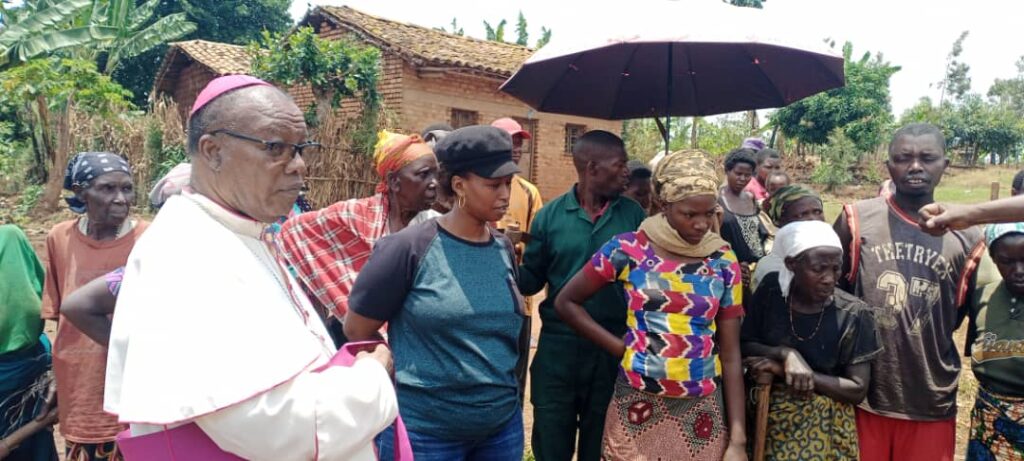
- Building Institutional Capacity: Enhancing the capacity of church institutions to deliver services effectively and sustainably.

- Monitoring and Evaluation: Establishing a comprehensive monitoring and evaluation system to track progress and make necessary adjustments.

Future Outlook
Under the leadership of Bishop Jean Bosco Ntagungira, the Diocese of Butare is poised to continue its mission of evangelization, education, and community development. The diocese remains a vital part of the Catholic Church in Rwanda, contributing to the spiritual and social well-being of its members. The future looks promising as the diocese builds on its rich history and continues to serve its community with dedication and faith.
Conclusion
The Diocese of Butare stands as a testament to the enduring legacy of the Catholic Church in Rwanda. From its establishment in 1961 to the present day, the diocese has played a crucial role in the spiritual and social development of the region. With a strong foundation laid by its early leaders and continued growth under new leadership, the Diocese of Butare is well-positioned to face the future with hope and determination.
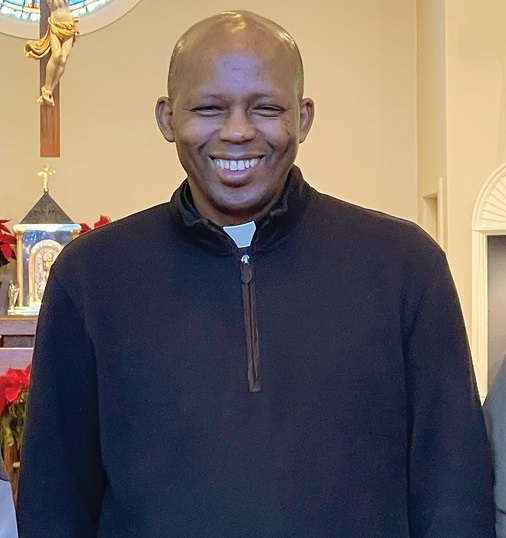
(IN CHARGE OF DEVELOPMENT AND PRODUCTION UNIT BUTARE DIOCESE)
